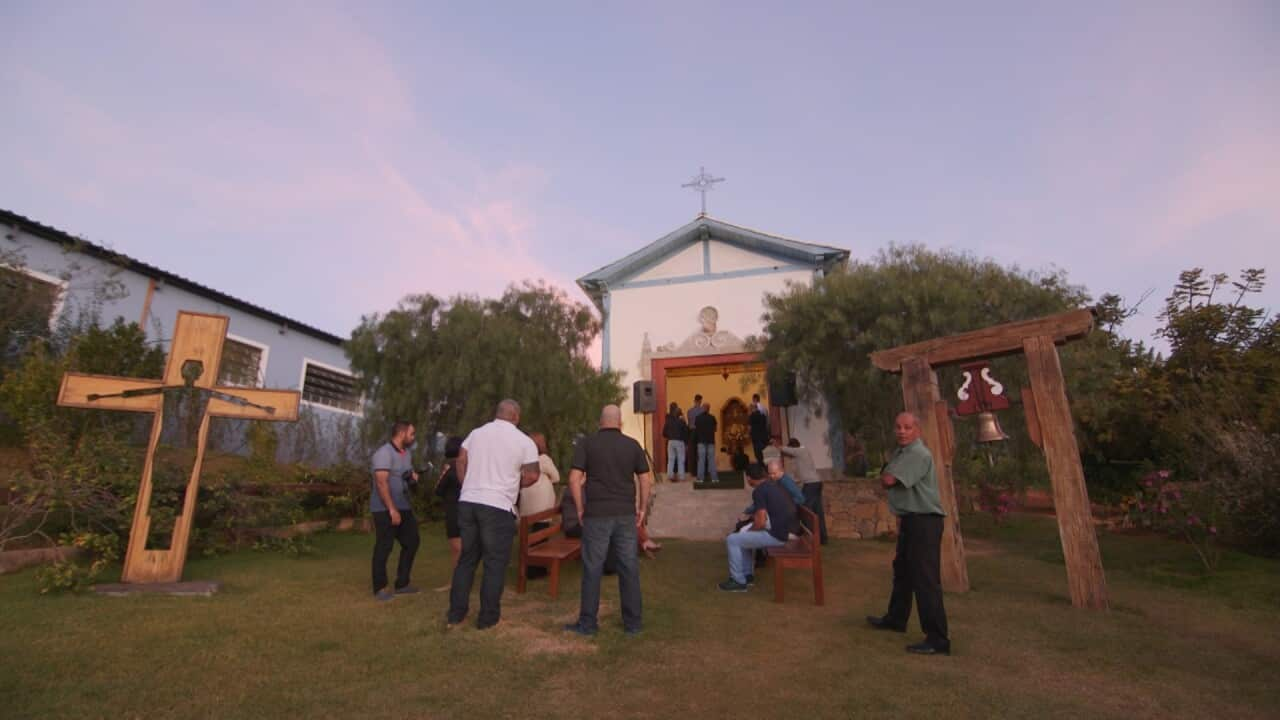Brazil is home to the third highest prison population in the world, with approximately 720,000 inmates filling its jails.
In the last two years, over 500 prisoners have been killed in 11 separate riots, while the recidivism rate – the number of convicts reoffending - nears 80 per cent.
In response to these figures, a revolutionary system has become a shining light in the country’s incarceration crisis.
The APAC jail (Association for the protection and assistance of the convicted) is run by the prisoners. They enforce their own rules, cook their own food and perform inspections for fellow cell mates. The results are significant drops in the recidivism rate.
But local criminal lawyer, Barbara Furtado, says APAC should not be judged on results alone.
In a country where a 38-metre tall statue of Jesus Christ – Christ the Redeemer – is a revered landmark, Furtado questions the religious underpinnings of APAC’s prison systems and its tendency to impose spirituality on its inmates.
“We have always had tough prisons in Brazil, actually in Latin America,” she told Dateline.
“We had a lot of change a few years ago and this has increased the people in jail because the law didn't establish the quantity of drugs that a person can be (caught with to be) persecuted.
“So we actually have a medieval system right now – our inmates don't just lose their freedom, they lose their dignity as human beings.
“They don't have health, education, they don't have their families to stay with them so it's very hard.
“APAC were created to be a Catholic association, they entered into prison and gave material and religious assistance to the inmates and then they expected the inmates to do something in return.
“They have to behave according to a pattern of behaviour that is written in the bible. So when they start to manage prisons they still continue to do it. Now they are using law to force people to be Christian.
"Okay you can believe in whatever you want, but you have to pray before you eat, you have to pray before you sleep, you have to pray as soon as you wake up."
One of APAC’s significant supporters, Judge Ernani Neves, acknowledges APAC’s religious roots – but is quick to dismiss religion as the prison’s only driving force.
“APAC was indeed born from within a Catholic community,” he told Dateline.
“APAC comes from the acronym Loving Your Neighbour is Loving Christ (Amando ao Próximo Amarás a Cristo). From there was created the Association for Protection and Assistance of the Condemned (APAC). But today we’re already disconnected from this religious ideology.
“One of APAC's basis, one of the ways to apply the APAC method, is the religion, indeed. We believe that every person needs to believe in some religion, be it Catholicism, Evangelicalism, Spiritism.
In the face of popular criticism, Judge Neves, believes APAC’s results prove its value in a prison system that is struggling to house and rehabilitate its inmates.
“Brazil faces a very big problem in the prisons related to the lack of government funds," he said.
“We have this crisis of investment and in consequence our jails, our correctional centres, don't have the same capacity to rehabilitate people as in other countries.
“We try to show society that people who committed crimes, who made mistakes, also have the right to be given an opportunity.”
Watch Prison With No Locks in the player at the top of the page.





